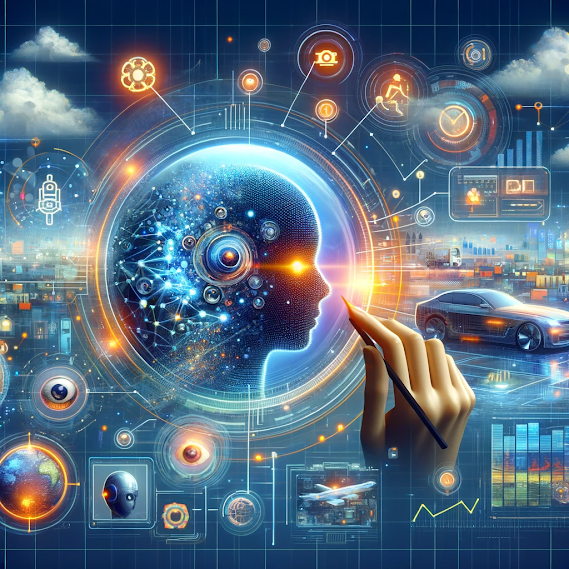Unleashing the Power of Generative AI in B2B Sales
Unleashing the Power of Generative AI in B2B Sales
The Potential of Generative AI in B2B Sales
With GenAI, B2B sales organizations have a powerful tool at their disposal to enhance their operations and drive growth. According to research conducted by BCG, more than 70% of sales leaders are planning to invest in GenAI, recognizing its potential to revolutionize the sales process. Already, over 50% of sellers acknowledge that GenAI helps increase sales by improving customer interactions. However, many organizations are still grappling with how to fully leverage this technology, highlighting the need for a strategic approach to adoption.
Building Seller Trust: A Prerequisite for Success
Before diving into the implementation of GenAI solutions, it's crucial to build seller trust. Sales teams must feel comfortable working alongside AI-powered assistants and understand the value that these digital teammates bring to the table. Establishing trust involves involving sales users in the design process, addressing pain points, and ensuring that safety measures are in place to mitigate risks. By fostering a culture of collaboration and transparency, organizations can lay the foundation for successful GenAI adoption.
A Three-Horizon Framework for GenAI Transformation
To guide organizations through the process of GenAI adoption, BCG has developed a three-horizon framework. This structured approach enables enterprises to harness GenAI at scale and pace, driving tangible benefits for sales teams across all levels. Let's explore each horizon in detail:
1. Augment and Automate: "Do What We Do Today, but Faster and Better"
In the initial phase of GenAI adoption, sales organizations should focus on augmenting their existing processes and automating routine tasks. GenAI personas act as expert assistants, helping sales teams improve productivity and efficiency. By leveraging off-the-shelf capabilities within existing CRM systems, organizations can realize immediate benefits without disrupting workflows. For example, AI-powered sales assistants can update CRM data, provide relevant insights, and streamline customer engagement, freeing up sellers to focus on closing deals.
2. Reimagine Workflows: "Change the Way Our Work Gets Done"
In the second horizon, organizations reimagine their workflows to fully integrate GenAI into sales processes. By leveraging AI-powered solutions, such as automated proposal generation and lead qualification, sales teams can streamline complex processes and accelerate deal cycles. It's essential to view this transformation as a business, rather than a tech, initiative, focusing on creating value-added moments and minimizing operational inefficiencies. Additionally, sellers need to reskill to effectively partner with AI and maximize its impact on sales outcomes.
3. Drive Transformational Change: "Scale Our Impact"
In the final horizon, GenAI becomes central to organizational workflows, enabling sales teams to replicate the outcomes of their best performers at scale. With AI-powered solutions, organizations can break down silos between marketing, sales, and service functions, driving greater alignment across the customer lifecycle. This transformation requires organizations to redefine their operating models, technology architecture, and risk management strategies to fully capitalize on the potential of GenAI.
Getting Started: Three Key Steps
Embarking on a GenAI journey requires careful planning and execution. Here are three key steps for organizations looking to harness the power of AI in B2B sales:
Prioritize Use Cases: Identify high-value, low-friction use cases for GenAI adoption, focusing on tasks that can be automated or augmented to improve sales productivity.
Build Innovation Muscle: Pilot GenAI capabilities, measure value, and iterate based on feedback, involving sales teams throughout the process to build enthusiasm and buy-in.
Define a Vision: Develop an audacious vision for the future of sales operations, outlining the transformative impact of GenAI on organizational workflows and customer engagement.
Generative AI represents a paradigm shift in B2B sales, offering organizations unprecedented opportunities to drive growth and enhance customer relationships. By adopting a strategic approach to GenAI transformation, sales executives can unlock new market opportunities, personalize customer engagement, and streamline sales processes, ultimately driving greater sales effectiveness and business success in the digital age.


.jpeg)


Comments
Post a Comment